#Impune
Text
Hoy estuve merendando con Ale y entendí que me tiene guardado en un pedacito de su eternidad. Es un lugar mágico donde yo puedo cambiar las veces que sea y ella jamás va a cambiar lo que siente por mí (siempre que no me convierta en un idiota, claro, no es esa leyenda urbana de amor incondicional).
Me gustaría tener un lugar así para que la gente que quiero pueda esconderse de lo que sea, pero no soy Ale, soy mucho peor que ella, pongo a prueba a todas las personas cada vez que me las cruzo, las evalúo, sospecho que desde nuestro último encuentro pudieron moverse a esa zona en la que ya no somos tan compatibles, y cuanto más tiempo pasa sin que nos veamos o hablemos más sospecho. A veces esa sospecha (o el tiempo, o ambas) es tan grande que ya ni siquiera intento volver a ver a esa persona, rechazo cualquier propuesta de encuentro con excusas cada vez más fútiles. Me dedico a huir.
Ojo que Ale no es ingenua, solo que no usa ningún test de mediocridemia ni ninguna de esas cosas exóticas que yo me invento. Ella es puro instinto, en nuestra merienda me lo dijo aunque no me lo dijo, lo que habló fue esto: me contó que fulano la criticó por tal cosa, y mengana por la misma cosa, y yo sin embargo nunca le había dicho nada al respecto. Aclaró (encima) que yo podría haberla criticado por lo que sea, y a diferencia de los otros ejemplos habría salido impune. “Vos siempre salís impune” me dijo con su envidia de turno “porque nosotros nos decimos las peores cosas y nos cagamos de la risa mientras que estos tarados abordan con total seriedad esas cosas horribles y a mi si me vas a hablar en serio de algo serio o tenes mucha confianza conmigo o sos un juez penal o la policía o algo de eso”.
-Yo se que los ansiolíticos te dan sueño -le dije -pero ni eso te quita los ojos de merquera cuando empezás a hablar de la gente que odias.
Se tapó la risa con la mano tatuada hasta la punta de los dedos, que es lo que siempre hace cuando tengo razón, o cuando me confirma que me tiene bien guardado en un lugar eterno. Suyo. Nuestro.

Acostumbradoalfindelmundolandia: linktr.ee/acostumbradoalfindelmundo
#acostumbrado al fin del mundo#ale#vinculos#eternidad#prueba#evaluar#evaluacion#compatibles#tiempo#sospechas#aceptacion#rechazo#mediocridemia#instinto#impune#inmune
4 notes
·
View notes
Text
25 de enero de 1997 ,NO SE OLVIDEN DE CABEZAS.
El 25 de enero de 1997 apareció dentro de un Ford Fiesta (alquilado por la revista Noticias) el cuerpo carbonizado, esposado y con dos tiros en el cráneo de José Luis Cabezas, en una cava de General Madariaga, a 11 kilómetros de Pinamar.
El crimen ocurrió luego de que la revista para la que Cabezastrabajaba como reportero gráfico cubriera la investigación sobre la presunta implicación del…
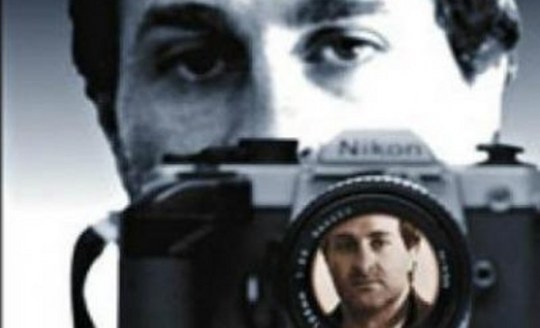
View On WordPress
0 notes
Text
How the NYPD defeated bodycams
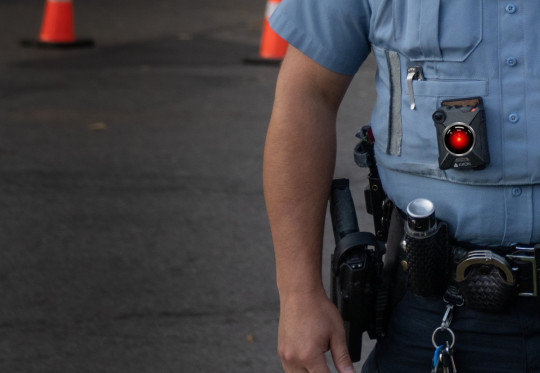
Anything that can't go on forever will eventually stop. When American patience for racial profiling in traffic stops reached a breaking point, cops rolled out dashcams. Dashcam footage went AWOL, or just recorded lots of racist, pretextual stops. Racial profiling continued.
Tasers and pepper spray were supposed to curb the undue use of force by giving cops an alternative to shooting dangerous-seeming people. Instead, we got cops who tasered and sprayed unarmed people and then shot them to pieces.
Next came bodycams: by indelibly recording cops' interactions with the public, body-worn cameras were pitched as a way to bring accountability to American law-enforcement. Finally, police leadership would be able to sort officers' claims from eyewitness accounts and figure out who was lying. Bad cops could be disciplined. Repeat offenders could be fired.
Police boosters insist that police violence and corruption are the result of "a few bad apples." As the saying goes, "a few bad apples spoil the bushel." If you think there are just a few bad cops on the force, then you should want to get rid of them before they wreck the whole institution. Bodycams could empirically identify the bad apples, right?
Well, hypothetically. But what if police leadership don't want to get rid of the bad apples? What if the reason that dashcams, tasers, and pepper spray failed is that police leadership are fine with them? If that were the case, then bodycams would turn into just another expensive prop for an off-Broadway accountability theater.
What if?
In "How Police Have Undermined the Promise of Body Cameras," Propublica's Eric Umansky and Umar Farooq deliver a characteristically thorough, deep, and fascinating account of the failure of NYPD bodycams to create the accountability that New York's political and police leadership promised:
https://www.propublica.org/article/how-police-undermined-promise-body-cameras
Topline: NYPD's bodycam rollout was sabotaged by police leadership and top NYC politicians. Rather than turning over bodycam footage to oversight boards following violent incidents, the NYPD suppresses it. When overseers are allowed to see the footage, they get fragmentary access. When those fragments reveal misconduct, they are forbidden to speak of it. When the revealed misconduct is separate from the main incident, it can't be used to discipline officers. When footage is made available to the public, it is selectively edited to omit evidence of misconduct.
NYPD policy contains loopholes that allow them to withhold footage. Where those loopholes don't apply, the NYPD routinely suppresses footage anyway, violating its own policies. When the NYPD violates its policies, it faces no consequences. When overseers complain, they are fired.
Bodycams could be a source of accountability for cops, but for that to be true, control over bodycams would have to vest with institutions that want to improve policing. If control over bodycams is given to institutions that want to shield cops from accountability, that's exactly what will happen. There is nothing about bodycams that makes them more resistant to capture than dashcams, tasers or pepper spray.
This is a problem across multiple police departments. Minneapolis, for example, has policies from before and after the George Floyd uprisings that require bodycam disclosure, and those policies are routinely flouted. Derek Chauvin, George Floyd's murderer, was a repeat offender and had been caught on bodycam kneeling on other Black peoples' necks. Chauvin once clubbed a 14 year old child into unconsciousness and then knelt on his neck for 15 minutes as his mother begged for her child's life. Chauvin faced no discipline for this and the footage was suppressed.
In Montgomery, Alabama, it took five years of hard wrangling to get access to bodycam footage after an officer sicced his attack dog on an unarmed Black man without warning. The dog severed the man's femoral artery and he died. Montgomery PD suppressed the footage, citing the risk of officers facing "embarrassment."
In Memphis, the notoriously racist police department was able to suppress bodycam disclosures until the murder of Tyre Nichols. The behavior of the officers who beat Nichols to death are a testament to their belief in their own impunity. Some officers illegally switched off their cameras; others participated in the beating in full view of the cameras, fearing no consequences.
In South Carolina, the police murder of Walter Scott was captured on a bystander's phone camera. That footage made it clear that Scott's uniformed killers lied, prompting then-governor Nikki Haley to sign a law giving the public access to bodycam footage. But the law contained a glaring loophole: it made bodycam footage "not a public record subject to disclosure." Nothing changed.
Bodycam footage does often reveal that killer cops lie about their actions. When a Cincinnati cop killed a Black man during a 2015 traffic-stop, his bodycam footage revealed that the officer lied about his victim "lunging at him" before he shot. Last summer, a Philadelphia cop was caught lying about the circumstances that led to him murdering a member of the public. Again, the officer claimed the man had "lunged at him." The cop's camera showed the man sitting peacefully in his own car.
Police departments across the country struggle with violent, lying officers, but few can rival the NYPD for corruption, violence, scale and impunity. The NYPD has its own "goon squad," the Strategic Response Group, whose leaked manual reveals how the secret unit spends about $100m/year training and deploying ultraviolent, illegal tactics:
https://pluralistic.net/2021/04/07/cruelty-by-design/#blam-blam-blam
The NYPD's disciplinary records – published despite a panicked scramble to suppress them – reveal the NYPD's infestation with criminal cops who repeatedly break the law in meting out violence against the public:
https://pluralistic.net/2020/07/27/ip/#nypd-who
These cops are the proverbial bad apples, and they do indeed spoil the barrel. A 2019 empirical analysis of police disciplinary records show that corruption is contagious: when crooked cops are paired with partners who have clean disciplinary records, those partners become crooked, too, and the effect lasts even after the partnership ends:
https://journals.sagepub.com/doi/full/10.1177/2378023119879798
Despite the risk of harboring criminals in police ranks, the NYPD goes to extreme lengths to keep its worst officers on the street. New York City's police "union"'s deal with the city requires NYC to divert millions to a (once) secret slushfund used to pay high-priced lawyers to defend cops whose conduct is so egregious that the city's own attorneys refuse to defend them:
https://pluralistic.net/2021/03/26/overfitness-factor/#heads-you-lose-tails-they-win
This is a good place for your periodic reminder that police unions are not unions:
https://pluralistic.net/2020/07/28/afterland/#selective-solidarity
Indeed, despite rhetoric to the contrary, policing is a relatively safe occupation, with death rates well below the risks to roofers, loggers, or pizza delivery drivers:
https://pluralistic.net/2022/01/27/extraordinary-popular-delusions/#onshore-havana-syndrome
The biggest risk to police officers – the single factor that significantly increased death rates among cops – is police unions themselves. Police unions successfully pressured cities across American to reject covid risk mitigation, from masking to vaccinations, leading to a wave of police deaths. "Suicide by cop" is very rare, but US officers committed "mass suicide by cop union":
https://www.nytimes.com/2021/10/12/us/police-covid-vaccines.html
But the story that policing is much more dangerous than it really is a useful one. It has a business-model. Military contractors who turn local Barney Fifes into Judge Dredd cosplayers with assault rifles, tanks and other "excess" military gear make billions from the tale:
https://pluralistic.net/2020/07/10/flintstone-delano-roosevelt/#1033-1022
It's not just beltway bandits who love this story. For cops to be shielded from consequences for murdering the public, they need to tell themselves and the rest of us that they are a "thin blue line," and not mere armed bureaucrats. The myth that cops are in constant danger from the public justifies hair-trigger killings.
Consider the use of "civilian" to describe the public. Police are civilians. The only kind of police officer who isn't a civilian is a military policeman. Places where "civilians" interact with non-civilian law enforcement are, by definition, under military occupation. Calling the public "civilians" is a cheap rhetorical trick that converts a police officer to a patrolling soldier in hostile territory. Calling us "civilians" justifies killing us, because if we're civilians, then they are soldiers and we are at war.
The NYPD clearly conceives of itself as an occupying force and considers its "civilian" oversight to be the enemy. When New York's Civilian Complaint Review Board gained independence in 1993, thousands of off-duty cops joined Rudy Giuliani in a mass protest at City Hall and an occupation of the Brooklyn Bridge. This mass freakout is a measure of police intolerance for oversight – after all, the CCRB isn't even allowed to discipline officers, only make (routinely ignored) recommendations.
Kerry Sweet was the NYPD lawyer who oversaw the department's bodycam rollout. He once joked that the NYPD missed a chance to "bomb the room" where the NYPD's CCRB was meeting (when Propublica asked him to confirm this, he said he couldn't remember those remarks, but "on reflection, it should have been an airstrike").
Obvious defects in the NYPD's bodycam policy go beyond the ability to suppress disclosure of the footage. The department has no official tracking system for its bodycam files. They aren't geotagged, only marked by officer badge-number and name. So if a member of the public comes forward to complain that an unknown officer committed a crime at a specific place and time, there's no way to retrieve that footage. Even where footage can be found, the NYPD often hides the ball: in 20% of cases where the Department told the CCRB footage didn't exist, they were lying.
Figuring out how to make bodycam footage work better is complex, but there are some obvious first steps. Other cities have no problem geotagging their footage. In Chicago, the CCRB can directly access the servers where bodycam footage is stored (when the NYPD CCRB members proposed this, they were fired).
Meanwhile, the NYPD keeps protecting its killers. The Propublica story opens with the police killing of Miguel Richards. Richards' parents hadn't heard from him in a while, so they asked his Bronx landlord to check on him (the Richards live in Jamaica). The landlord called the cops. The cops killed Richards.
The cops claimed he had a gun and they were acting in self-defense. They released a highly edited reel of bodycam footage to support that claim. When the full video was eventually extracted, it revealed that Richards had a tiny plastic toy guy and a small folding knife. The officers involved believed he was suffering an acute mental health incident and stated that policy demanded that they close his bedroom door and wait for specialists. Instead, they barked orders at him and then fired 16 rounds at him. Seven hit him. One ruptured his aorta. As he lay dying on his bedroom floor, one officer roughly tossed him around and cuffed him. He died.
New York's Police Benevolent Association – the largest police "union" in NYC – awarded the officers involved its "Finest of the Finest" prize for their conduct in the killing.
This isn't an isolated incident. A month after the NYPD decided not to punish the cops who killed Richards, NYPD officers murdered Kawaski Trawick in his Bronx apartment:
https://pluralistic.net/2020/12/04/kawaski-trawick/#Kawaski-Trawick
The officers lied about it, suppressed release of the bodycam footage that would reveal their lies, and then escaped any justice when the footage and the lies were revealed.
None of this means that bodycams are useless. It just means that bodycams will only help bring accountability to police forces when they are directed by parties who have the will and power to make the police accountable.
When police leaders and city governments support police corruption, adding bodycams won't change that fact.

If you'd like an essay-formatted version of this post to read or share, here's a link to it on pluralistic.net, my surveillance-free, ad-free, tracker-free blog:
https://pluralistic.net/2023/12/13/i-want-a-roof-over-my-head/#and-bread-on-the-table

Image:
Cryteria (modified)
https://commons.wikimedia.org/wiki/File:HAL9000.svg
CC BY 3.0
https://creativecommons.org/licenses/by/3.0/deed.en
--
Tony Webster, modified
https://commons.wikimedia.org/wiki/File:Minneapolis_Police_Officer_Body_Camera_%2848968390892%29.jpg
CC BY-SA 2.0
https://creativecommons.org/licenses/by-sa/2.0/deed.en
#pluralistic#impunity#ccrb#nypd#abolish the police#acab#police#corruption#bodycams#body-worn cameras#propublica
3K notes
·
View notes
Text
You know how bullshit rent is? Elon Musk hasn't paid rent on Twitter's main offices in, like, 6 months, and has Twitter been evicted? Of course not. Apparently, when you're rich or a company, you can just tell your landlords to fuck off and the gov won't do shit to you.
#zA Writes#Elon Musk#Twitter#Rent#Capitalism#Society#Impunity#zA's Inveterate Politicism#cantankerous posts
5K notes
·
View notes
Text
#JusticiaParaEric, era médico pasante de tan solo 24 años de edad; fue ejecutado en Durango
#JusticiaParaEric, era médico pasante de tan solo 24 años de edad; fue ejecutado en Durango
La Fiscalía General del Estado tomó conocimiento del homicidio del médico pasante de 24 años de edad, en un consultorio médico del ejido El Brillante, de Pueblo Nuevo
El doctor Eric Andrade Ramírez, pasante del servicio social de Durango fue asesinado la tarde del viernes en el municipio de Pueblo Nuevo, Durango.
La Fiscalía General del Estado tomó conocimiento del homicidio del médico pasante…

View On WordPress
0 notes
Text
Inulto
adjetivo
1. não vingado.
Sinônimos, relações e derivações: impune, injusto, injustiça, impunidade
1 note
·
View note
Text




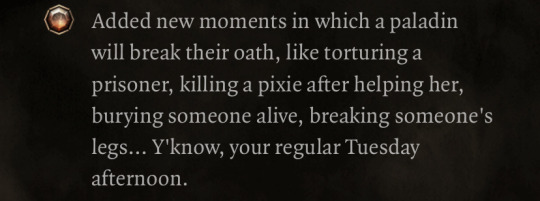


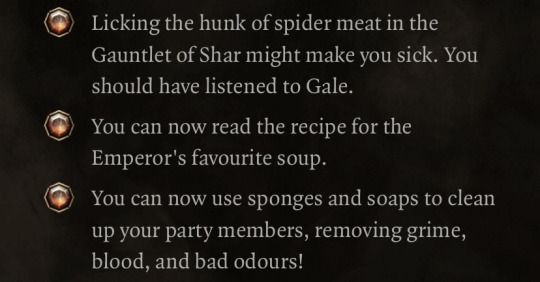


Unhinged game
#the Cazador thing!!!! let me kick men off platforms with impunity#baldurs gate#baldur's gate 3#bg3#baldurs gate patch#video games
601 notes
·
View notes
Text
Man I hate how much is required to be safe for women to travel. I have a little trip to go on and there's so much i need to do first like arranging someone to be there, have a companion to go with on the night bus, knowing someone in the other city.
Meanwhile moids just hop on anything and go.
Patriarchy isn't just some scary spectre looming in the distance, it's a real presence that stops our autonomy and freedom
#I fucking hate that I can't travel with impunity#Fuckin hell#radfems please interact#radfem#radical feminists please touch#radical feminism#radical feminist safe#rudefem#indian radfem
171 notes
·
View notes
Text
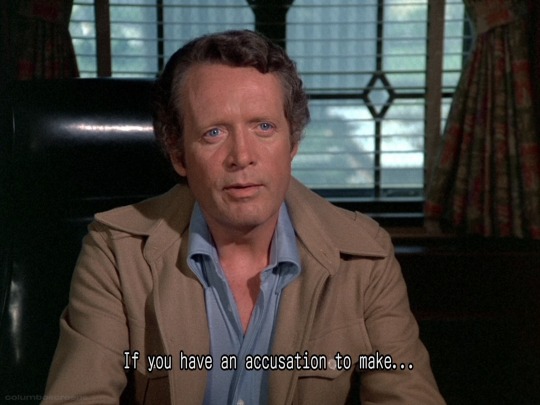
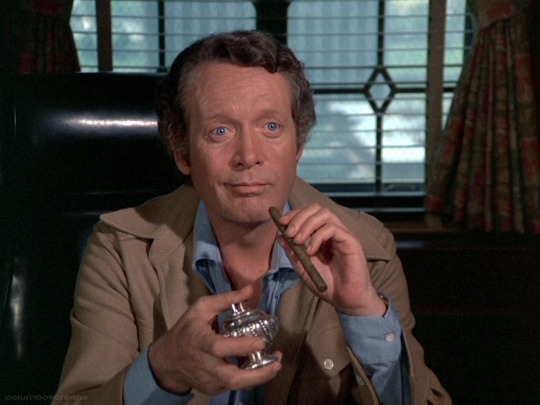
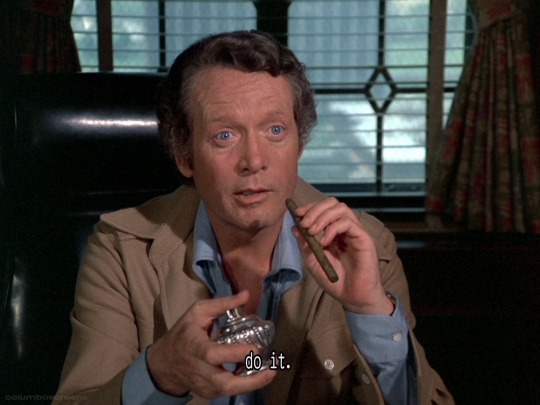
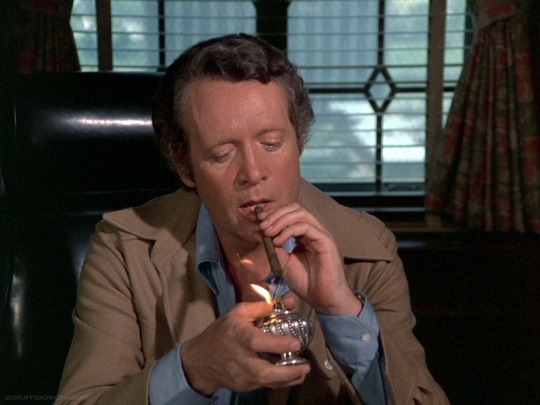
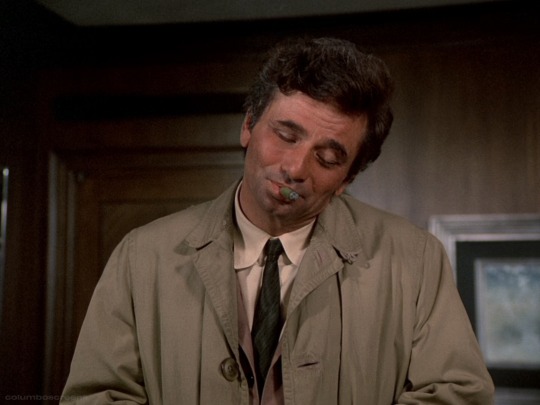
#columbo#season 5#identity crisis#love when the killers essentially drop trou and moon columbo with impunity because they know he can't do anything yet#just try to touch me you dumb crumpled mcdonalds bag#cigar measuring contest go
117 notes
·
View notes
Text
282 notes
·
View notes
Text
Israel “is very efficient in manipulating propaganda and brainwashing all over the world,” and is “the only occupier in history which presents itself as a victim.”
… is the world duty to interfere … the World must force peace on Israel.
- Gideon Levy , israeli journalist .
#Gideon Levy#israeli journalist#Gaza genocide#world duty#israel crimes against humanity#ICJ case#israel acussed of genocide#current events#israel eternal impunity#colonialism#israel aparthei state
86 notes
·
View notes
Text
Monopoly is capitalism's gerrymander
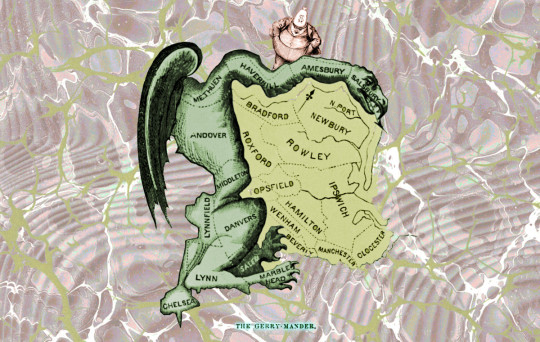
For the rest of May, my bestselling solarpunk utopian novel THE LOST CAUSE (2023) is available as a $2.99, DRM-free ebook!

You don't have to accept the arguments of capitalism's defenders to take those arguments seriously. When Adam Smith railed against rentiers and elevated the profit motive to a means of converting the intrinsic selfishness of the wealthy into an engine of production, he had a point:
https://pluralistic.net/2023/09/28/cloudalists/#cloud-capital
Smith – like Marx and Engels in Chapter One of The Communist Manifesto – saw competition as a catalyst that could convert selfishness to the public good: a rich person who craves more riches still will treat their customers, suppliers and workers well, not out of the goodness of their heart, but out of fear of their defection to a rival:
https://pluralistic.net/2024/04/19/make-them-afraid/#fear-is-their-mind-killer
This starting point is imperfect, but it's not wrong. The pre-enshittified internet was run by the same people who later came to enshittify it. They didn't have a change of heart that caused them to wreck the thing they'd worked so hard to build: rather, as they became isolated from the consequences of their enshittificatory impulses, it was easier to yield to them.
Once Google captured its market, its regulators and its workforce, it no longer had to worry about being a good search-engine – it could sacrifice quality for profits, without consequence:
https://pluralistic.net/2024/04/24/naming-names/#prabhakar-raghavan
It could focus on shifting value from its suppliers, its customers and its users to its shareholders:
https://pluralistic.net/2024/05/15/they-trust-me-dumb-fucks/#ai-search
The thing is, all of this is well understood and predicted by traditional capitalist orthodoxy. It was only after a gnostic cult of conspiratorialists hijacked the practice of antitrust law that capitalists started to view monopolies as compatible with capitalism:
https://pluralistic.net/2022/02/20/we-should-not-endure-a-king/
The argument goes like this: companies that attain monopolies might be cheating, but because markets are actually pretty excellent arbiters of quality, it's far more likely that if we discover that everyone is buying the same product from the same store, that this is the best store, selling the best products. How perverse would it be to shut down the very best stores and halt the sale of the very best products merely to satisfy some doctrinal reflex against big business!
To understand the problem with this argument, we should consider another doctrinal reflex: conservatives' insistence that governments just can't do anything well or efficiently. There's a low-information version of this that goes, "Governments are where stupid people who can't get private sector jobs go. They're lazy and entitled." (There's a racial dimension to this, since the federal government has historically led the private sector in hiring and promoting Black workers and workers of color more broadly.)
But beyond that racially tinged caricature, there's a more rigorous version of the argument: government officials are unlikely to face consequences for failure. Appointees and government employees – especially in the unionized federal workforce – are insulated from such consequences by overlapping layers of labor protection and deflection of blame.
Elected officials can in theory be fired in the next election, but if they keep their cheating or incompetence below a certain threshold, most of us won't punish them at the polls. Elected officials can further improve their odds of re-election by cheating some of us and sharing the loot with others, through handouts and programs. Elections themselves have a strong incumbency bias, meaning that once a cheater gets elected, they will likely get re-elected, even if their cheating becomes well-known:
https://www.nbcnews.com/politics/congress/gold-bars-featured-bob-menendez-bribery-case-linked-2013-robbery-recor-rcna128006
What's more, electoral redistricting opens the doors to gerrymandering – designing districts to create safe seats where one party always wins. That way, the real election consists of the official choosing the voters, not the voters choosing the official:
https://en.wikipedia.org/wiki/REDMAP
Inter-party elections – primaries and other nomination processes – have fundamental weaknesses that mean they're no substitute for well-run, democratic elections:
https://pluralistic.net/2023/04/30/weak-institutions/
Contrast this with the theory of competitive markets. For capitalism's "moral philosophers," the physics by which greedy desires led to altruistic outcomes was to be found in the swift retribution of markets. A capitalist, exposed to the possibility of worker and customers defecting to their rival, knows that their greed is best served by playing fair.
But just as importantly, capitalists who don't internalize this lesson are put out of business and superceded by better capitalists. The market's invisible hand can pat you on the head – but it can also choke you to death.
This is where monopoly comes in. Even if you accept the consumer welfare theory that says that monopolies are most often the result of excellence, we should still break up monopolies. Even if someone secures an advantage by being great, that greatness will soon regress to the mean. But if the monopolist can extinguish the possibility of competition, they can maintain their power even after they cease deserving it.
In other words, the monopolist is like a politician who wins power – whether through greatness or by deceit – and then gerrymanders their district so that they can do anything and gain re-election. Even the noblest politician, shorn of accountability, will be hard pressed to avoid yielding to temptation.
Capitalism's theory proceeds from the idea that we are driven by our self-interest, and that competition turns self-interest into communal sentiment. Take away the competition, and all that's left is the self-interest.
I think this is broadly true, even though it's not the main reason I oppose monopolies (I oppose monopolies because they corrupt our democracy and pauperize workers). But even if capitalism's ability to turn greed into public benefit isn't the principle that's uppermost in my mind, it's what capitalists claim to believe – and treasure.
I think that most of the right's defense of monopolies stems from cynical, bad-faith rationalizations – but there are people who've absorbed these rationalizations and find them superficially plausible. It's worth developing these critiques, for their sake.

If you'd like an essay-formatted version of this post to read or share, here's a link to it on pluralistic.net, my surveillance-free, ad-free, tracker-free blog:
https://pluralistic.net/2024/05/18/market-discipline/#too-big-to-care
#pluralistic#capitalism#feudalism#too big to care#market discipline#graceful failure modes#gerrymandering#impunity#unaccountability#regulatory capture#monopolies#trustbusting
125 notes
·
View notes
Text
I've got a half-formed idea I can't quite squish into shape where Corroded Coffin finally has an opportunity to play where someone with useful influence - a talent scout, a music journalist - will hear them. Maybe it's a Battle of the Bands or something like that. They're keen as mustard but very, very nervous. Steve has come along to help them move their equipment and set up on stage and Eddie takes him to one side.
"Stevie," he says, pressing his hands together prayer-like, "I'm going to ask you to do something a little bit unethical."
"What, like sabotage the other bands' equipment?"
"God no. I said a little bit. You see that chick with the red hair in the white leather jacket talking to the organiser? Her opinion matters. Like, a lot. So what I want you to do is, when we're playing, you get close to her and turn on the charm."
"Am I trying to distract her?" Steve asks, looking puzzled.
"No! No, you're just going to be this big cute guy who gives her some flattering attention. That way, she remembers while Coffin was playing, she was having a good time. It's subtle, see? Psychological. You get it, right?"
"Obviously I get it," Steve says, "but what if she really wants to hear you and I'm just annoying?"
"Why would she think you're annoying?" Eddie asks, honestly baffled. "What girl would not be excited to have you paying attention to her?"
"A lesbian," Steve says immediately.
"Okay, but -"
"A happily taken one."
"Sure, but -"
"A professional who wants to concentrate on the performance and form an unbiased opinion."
"You're killing me, Stevie."
"Not to mention, you're asking me to focus on someone else when you're playing? Be realistic. I have my work cut out not to throw my underwear on the stage," Steve says, smiling.
(Here my idea kind of fizzles out. I don't know whether Eddie's encouraged by this or just exasperated that his boyfriend is no good as a henchman.)
#steddie#all my ideas about battles of the bands in the 80s are heavily filtered through Jem and the Holograms#the Misfits would absolutely sabotage the other bands' equipment#remember the time they stole the Holograms' instruments and drove off with them in their van#and then when the Holograms chased them in a car threw the instruments out the back of the van at them?#I absolutely love how much theft assault and general mayhem the Misfits perpetrate WITH TOTAL IMPUNITY#occasionally Stormer will have an attack of conscience#or Eric will realise someone's actually going to get maimed or killed and react with Utter Horror#as if the bomb wasn't planted on his orders!
685 notes
·
View notes
Text
Y'know what's funny to me?
The fact that the UK Parliament has decided to pick a fight with the country that's motto is LITERALLY "don't fuck with me."
Okay, technically it's "Nemo me impune lacessit" - No man provokes me with impunity - but there's a damn good reason that it's usually just rendered WHO DUAR MEDDLE WIT' ME?!
We are exiting the FA state. We are entering the FO stage.
540 notes
·
View notes
Text
it's actually kinda funny how the balance of nobles getting frenzied is already a little pearl clan heavy just by virtue of there being an uneven number, but then they also have a ride noble get pseudo-frenzied and rather than it being a diamond clan noble to even things out, it's ursaluna, who's also pearl. that's 4/5 pearl nobles who get some version of frenzied compared to only 2/5 for diamond. almighty sinnoh really said fuck these guys specifically. also a real "sneasler wins by doing nothing" sort of situation here
#the nemesis speaks#pla analysis#irida comments on this next chapter for unrelated reasons but it made me go hey yeah that IS kind of funny#ik it's lilligant's spores specifically that have some kind of maddening effect on ursaluna (maybe just being really irritated)#but. is there a universe where electrode zaps sneasler w an attack and she also Gets Mad#jk that wouldn't have any effect on the plot bc ingo has gliscor he could just dunk on her with impunity. plot point wrapped go home gang
22 notes
·
View notes
Text





#rafah#all eyes on rafah#rafah under attack#rafah under siege#trapped#there are no safe zones#you cant call this anything but ethnic cleansing#israeli war crimes#israel is an apartheid state#israel lies while palestine dies#propaganda kills#apartheid#save palestine#ethnic cleansing#free palestine 🇵🇸#genocide#let Palestine live#the US is complicit in genocide and war crimes#iof terrorism#iof war crimes#this was never about hamas#mass murder with impunity#israeli apartheid#israel is not the victim#israel is a terrorist state#israel is committing genocide#israel is a war criminal#israel must be stopped#Palestinians are being slaughtered and no one will do anything to stop it#humanity has failed Palestine
17 notes
·
View notes